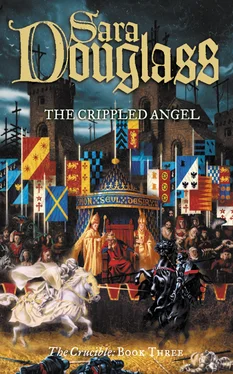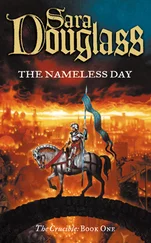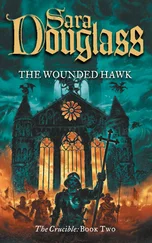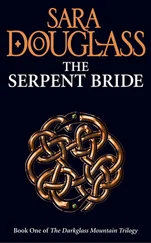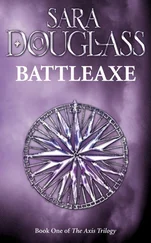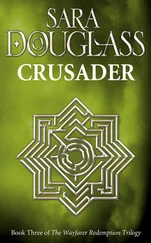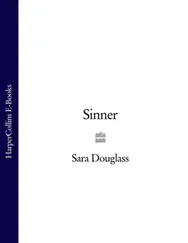“You are not all you would have me believe, are you, Margaret?”
Margaret opened her mouth, not knowing what to say.
Mary’s mouth grimaced in a frightful rictus, her breath odorous due to the potion she’d imbibed and the dryness of her tongue.
“Margaret,” she whispered, “why do so many people lie to me?”
And then, suddenly, she was asleep, and breathing easy.
Her hand relaxed away from Margaret’s.
“What clearer sign could you hope to have, my lord, than that of Exeter’s revolt?”
The son of the Earl of Northumberland, Sir Henry Percy, commonly called Hotspur, slouched in the chair, staring at Prior General Richard Thorseby with dark, unreadable eyes. The Prior General had joined his household six months ago, just after Bolingbroke had himself crowned. And for six months the Prior General had been whispering and arguing and pleading: King Henry was an evil man who had murdered Richard and who would drive England into the mud of ignominy should he be allowed to keep the throne.
And who else was to act if not Hotspur?
“Exeter’s revolt lasted an afternoon, Prior General,” Hotspur said, “and ended in his death and those of his allies. I do not call that a ‘clear sign’.”
“People resent Bolingbroke! The country will rise up against him if you lead!”
Hotspur sprang out of his chair, snatching a pike from a surprised man-at-arms guarding the doorway of the chamber, and threw it down at Thorseby’s feet. “If you think the country so ready to rise, then lead it yourself!”
Thorseby took a deep breath and composed his face. He folded his hands inside the voluminous sleeves of his habit and affected a righteous air, not realising that it only antagonised Hotspur further.
“Bolingbroke must be overthrown. He is the devil’s spawn.”
Trying to keep his temper, Hotspur strode to a shuttered window, unlatched one of the shutters, and drew it open. Outside there was nothing but cold, grey fog, with here and there the bare black branches of wind-blasted trees reaching into the low sky like the skeletal fingers of a corpse.
Lord God , Hotspur thought, I do not know which I hate more—the damp climes of these northern lands, or the ever-whining voice of the Prior General .
He stood a few minutes, allowing the still grey landscape outside to calm him, then he closed the shutter and turned back to Thorseby.
“I can understand your dislike of Thomas Neville,” Hotspur said, “but why your sudden hatred of Bolingbroke? Do you profess to hate him, and thus beg me to dislodge him from the throne, only so you can once more claim Neville?”
Thorseby took his time in answering. In truth, he did loathe Bolingbroke because of his protection of Neville… but that was not all. Sometimes, over these past few months, he’d had strange visitations from shadowy, cloaked figures who had whispered that they were the messengers of the angels, and it was heaven’s wish that Bolingbroke be torn down and destroyed. In his more lucid moments, Thorseby feared these shadowy, whispering visitors were but figments of his imagination. But these moments were few and far between, and generally Thorseby knew he had God, the angels and all of heaven behind him on this issue.
Bolingbroke must go. Neville must be brought to justice. And Hotspur was the most logical instrument of God’s will.
“Bolingbroke is an ungodly man,” Thorseby said, ensuring his face and voice remained calm and reasonable. “He murdered Richard and unjustly usurped his throne. He must be brought to justice. If my words do not persuade you, then be prepared. Soon God shall make His will clear with an unmistakable sign. You might not believe me, my lord, but you shall surely believe God.”
“Oh, and what shall God do?” said Hotspur. “Send a plague of frogs? Turn the Thames red with blood? Strike dead the first-born son in every family?”
“I should hope not the latter, my lord, if only for your sake.”
Hotspur grunted.
“I counsel you, my lord, to prepare your way now. Speak closely and secretly with those who will support you. Exeter was rash, stupid. He deserved to fail. But if you—”
“Do not tell me how to wage a war, Thorseby.”
Thorseby closed his mouth, raising his eyebrows slightly as if a schoolmaster rebuking his wayward pupil.
Hotspur picked up a letter that he’d been reading before Thorseby had come in. It was from his father, Northumberland, now back in his northern stronghold, and it contained many interesting statements and yet more interesting suggestions and promises. Hotspur’s father had grown somewhat tired of Bolingbroke, it seemed, especially since Bolingbroke had proved himself so willing to doubt Northumberland after Exeter’s attempted rebellion. A word here, a frown there, and so easily did allegiance shift. Hotspur pretended to peruse the letter for a few minutes, then he folded it carefully, and put it down again.
“If any man wishes to challenge Bolingbroke,” he said, “he will need more than swords behind him.”
Thorseby smiled, small and cold. “I am a powerful man in my own right,” he said. “The Dominican family will stand behind you. Already my friars have been whispering, preparing the way for God’s will as expressed through you.”
Thorseby’s Dominican “family” ? More like a murderous flock of black crows , thought Hotspur, and shivered slightly at the thought of the great winged beasts swooping down on him through the cold, grey mists.
“If God sends me a sign,” Hotspur said, “then I will move. Until then, I merely watch.”
“And plan.”
Hotspur hesitated, but only slightly. “And plan. Begone, Thorseby, for I think to warm this chamber with your absence.”
PART TWO
The Dog of Pestilence
Lady Mary stood all skin and bone,
Sure such a lady was never known:
This lady went to church one day,
She went to church for all to pray.
And when she came to the church stile,
She sat to rest a little while.
When she came to the church-yard,
There the bells so loud she heard.
When she came to the church door,
She stopt to rest a little more;
When she came the church within,
The parson pray’d ’gainst pride and sin.
On looking up, on looking down,
She saw a dead man on the ground;
And from his nose unto his chin,
The worms crawl’d out, the worms crawl’d in.
Then she unto the parson said,
Shall I be so when I am dead?
Oh yes! oh yes! the parson said,
You will be so when you are dead.
Traditional English nursery rhyme
I Tuesday 21st May 1381 —i—
The nave of St Paul’s in London was crowded with people but, strangely, nevertheless completely hushed. Many had queued patiently in the courtyard since many hours before dawn, hoping to be among the first admitted inside.
To see.
Two days ago King Richard’s corpse had arrived in London from Pontefract Castle in West Yorkshire. One hundred men-at-arms had accompanied the coffin on its black-draped bier, protecting it from the curious, subdued, close-pressed crowds. Behind the men-at-arms came nineteen hessian-wrapped and ash-painted professional mourners, one for each year of Richard’s life. They had accompanied the corpse to St Paul’s where six of the men-at-arms had carried it inside, the cathedral’s doors closing promptly behind them.
The dean and his monks had spent two days preparing both display and corpse. That amount of time had set tongues a-wagging all the faster. Why did they need so long? Was it proving hard to stitch up the dagger holes? Or to smooth his poison-ravaged face with flesh-coloured wax?
Читать дальше
